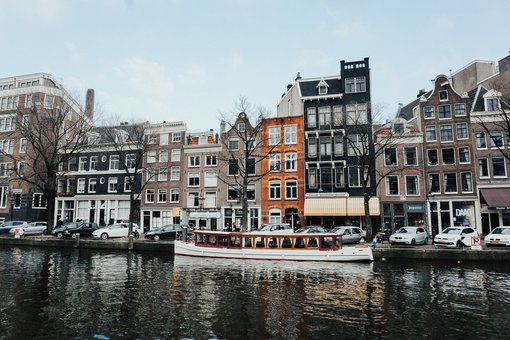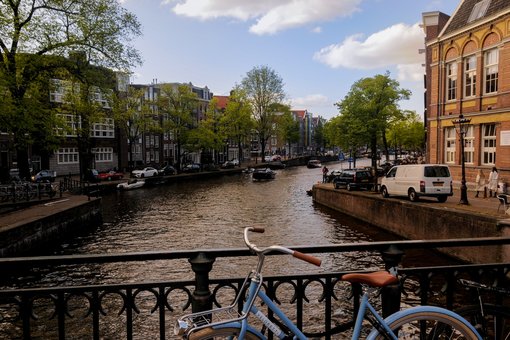How To Apply To Study in the Netherlands
Netherlands

The Netherlands is known for its excellent quality of higher education; thus, many international students apply yearly. Furthermore, the application process is straightforward for international students. The only thing to be aware of is that Dutch universities have strict rules for deadlines, so it is essential to apply before the deadline and as early as possible to increase your chances of admission.
Here is how to apply to study in the Netherlands as an international student:
What is the Application Process for Studying in the Netherlands?
The Netherlands offers a large variety of degree programs, most of which are taught in English, making it easier for international students to graduate. As easy as it is, it can also be challenging when you are presented with multiple options and have yet to decide on a major.
As such, it is important to go through the application process step by step to be able to begin your study abroad experience. There are several steps international students must go through when applying to study abroad in the Netherlands.
Below you will find a simple-to-understand guide on how to apply to study in the Netherlands:
1. Decide on a Degree Level and Program
Whether applying to an undergraduate or graduate program, you must browse through different higher education institutions to find the right program. Considering universities in the Netherlands have different application procedures, you should carefully check the requirements for the discipline you are interested in.
Some universities in the Netherlands may also require language proficiency tests, especially in master's or doctorate programs. Moreover, you should check if your timing is appropriate if the university and department require an entry test, which usually requires prior preparation.
2. Check the Eligibility
To study in the Netherlands, international students from Non-EU countries usually go through a slightly different application process than Dutch applicants. Checking whether you are eligible for the degree program you choose is important.
E.g., if you are applying for a master’s or doctorate, Dutch universities ask for diploma recognition from the country you received the previous diploma. Furthermore, you must check to see if you are eligible for the GPA minimum requirement.
The foreign recognition requirement also applies to some undergraduate degrees in the Netherlands, meaning that they may require Non-EU students to obtain official recognition of their high school diploma. With that being said, most universities in the Netherlands require students to have a high school degree or an equivalent (depending on the applicant's nationality) to be eligible for undergraduate studies.
3. Gather the Required Documents
Each university in the Netherlands can ask for different documents for admission, depending on the institution, degree level, and program you are applying for. However, the required documents for international students are typically the same for all Dutch higher education institutions.
Regardless of the degree level, the admission application typically requires some of the following documents to complete the application:
- High school diploma. Considering some countries offer only 11th-grade high school diplomas, international students must meet the Netherlands’ education system requirements and take a preparatory course in their home country to complete 12 years of secondary education.
- High school transcripts and GPA.
- Motivation letter.
- Language proficiency test scores.
- Minimum GPA of previously obtained diplomas.
- CV.
- Recommendation letters.
- GRE/GMAT scores for advanced degrees (masters, PhDs).
- Academic portfolio and transcripts.
- Study plans with subjects and hours per course.
4. Evaluate and Legalize the Foreign Qualifications
If you are an international applicant and have obtained any previous diploma or qualification outside of the Netherlands, you must legalize the foreign qualification in a Dutch equivalent. You can legalize the diploma with a so-called ‘apostille stamp,’ which you must receive in the country where the diploma is issued. Typically the Ministry of Foreign Affairs issues the apostille stamp.
To get your foreign qualification evaluated, you must check the standards of the Dutch higher education system. The foreign qualification shows whether you are eligible for admission to the program you are interested in.
Where Can I Get My Foreign Qualifications Evaluated?
- The university you are applying to can evaluate your qualifications for free.
- Get the foreign qualification evaluated through a Regional Training Centre (ROC) in the Netherlands or an institution of higher professional education (hogeschool).
- You can apply through the “idw.nl” website if the particular university cannot issue the evaluation.
What Are the Required Documents for a Credential Evaluation?
To get the foreign qualifications evaluated, you need copies of the following documents:
- Diploma or certificates.
- Grade transcripts.
- Passport
- Residence permit or ID.
5. Application Deadlines
Most Dutch universities allow students to apply in two terms. Dutch universities can be strict with admission deadlines, so it is rare for universities to extend the deadline they set at the beginning.
Here are the two application terms for studying in the Netherlands:
- Fall Semester: This is the most popular term, and all universities have a fall semester application deadline. The deadline for the fall semester for students who need to get a visa is mainly in April at the latest.
- Spring Semester: The spring semester is less common. However, it is available in most degree programs in the Netherlands. The deadline for the spring semester is typically in September or October for Non-EU applicants that need a visa.
6. Submitting the Application
If you are unsure where to submit your application, it is advisable to contact the university directly to request detailed instructions. However, the application process in the Netherlands is one of the easiest for all degree levels. There are usually two methods to apply for studies in the Netherlands. However, it still depends on the university, degree level, and program.
Here is how to apply to study at a Dutch university:
- Apply directly through the university.
- Apply via Studielink. The Studielink website is the official registration portal for programs at Dutch universities, and most universities accept applications through this website. Through this website, students can apply to four courses simultaneously, and the website allows them to change the degree program anytime before the deadline.
7. Receive the Acceptance Letter
Typically, you can expect to receive the results of your application to Dutch universities by the end of spring for the Fall semester. After receiving the admission letter, Non-EU students must enroll and pay the tuition fees for one semester before starting the academic year.
Non-EU students must also apply for a student visa immediately after they receive their acceptance letter, considering the visa application procedure may take time. You must also gather several documents to complete the visa application form.
Usually, the university in the Netherlands submits the visa application on the student's behalf to the Dutch Immigration Department (IND).
How do I Apply for Scholarships in the Netherlands?
There are several scholarships available at the majority of Dutch universities. Students can also apply for government scholarship programs that are awarded by Excellency.
Depending on the scholarship, you can apply directly to the university that offers the scholarship. Some scholarships require students to be enrolled in a Dutch university —part of the scholarship program— to be eligible.


